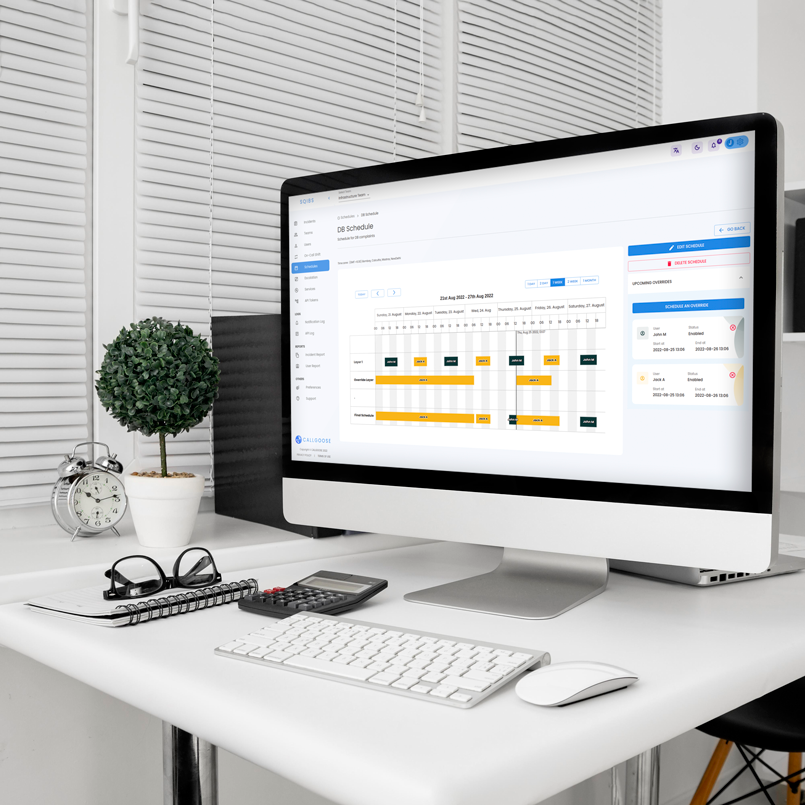Integrations
Freshworks Freshservice
Integration of Freshworks Freshservice with Callgoose SQIBS
Overview
This document provides a detailed guide to integrating Freshworks Freshservice with Callgoose SQIBS for Event-Driven Automation, Ticket-based Auto Remediation, and IT service management automation. The integration allows Freshservice to send incident or service request updates via webhooks to Callgoose SQIBS, which can invoke automation actions and update the status of Freshservice tickets upon completion.
Prerequisites
- Freshservice Account: Admin access to configure workflows and generate API tokens.
- Callgoose SQIBS Account: Access to create API filters and configure automation actions.
- API Token and Endpoint: Required for both receiving data from Freshservice and sending updates back.
1. Obtain API Token and Endpoint Details in Callgoose SQIBS
1.1 Generate API Token:
- Refer to: How to Create API Token in Callgoose SQIBS 1.2 Find API Endpoint:
- Refer to: Callgoose SQIBS API Endpoint Documentation
2. Configure Webhook in Freshservice to Trigger Automation in Callgoose SQIBS
2.1 Create a Workflow Automator Rule
- Log in to Freshservice: https://www.freshworks.com/freshservice
- Go to Admin > Workflow Automator
- Click New Workflow > Select Incident or Service Request
- Define the Event Trigger (e.g., When an Incident is created or updated)
- Add a Condition (optional): e.g., Priority is High
- In Actions, select Trigger Webhook
- Configure Webhook:
- URL: https://<your_callgoose_instance>/sqibs/integration_endpoint
- Method: POST
- Encoding: JSON
- Headers:
Content-Type: application/json Authorization: Token <your_token_if_required>
- Body Example:
{
"ticket_id": "{{ticket.id}}",
"subject": "{{ticket.subject}}",
"description": "{{ticket.description}}",
"priority": "{{ticket.priority}}",
"requester_email": "{{ticket.requester.email}}"
}
- Save and enable the workflow
3. Generate API Token in Freshservice
To allow Callgoose SQIBS automation to update ticket status or add notes:
- Go to Profile Settings in Freshservice
- Copy your API Key
- Use this in API requests from Callgoose SQIBS with:
- Authorization: Basic <base64(api_key:X)>
4. Configure Callgoose SQIBS to Process Freshservice Payloads
4.1 Create API Filter in Callgoose SQIBS
- Go to the API Filters section
- Add a new filter matching the Freshservice webhook payload
- Example Trigger Filter:
- Payload JSON Key: priority
- Key Value Contains: ["High"]
- Map Incident With: ticket_id
- Incident Title From: subject
- Incident Description From: description
4.2 Execute Automation
- Link automation workflows (e.g., scripts, playbooks) to the incident created from the webhook
4.3 Update Freshservice Ticket after Automation
- API Endpoint:
PUT https://<your_domain>.freshservice.com/api/v2/tickets/<ticket_id>
- Headers:
Content-Type: application/json Authorization: Basic <base64-token>
- Payload Example:
{
"status": 5,
"priority": 1,
"description": "Resolved by Callgoose SQIBS automation."
}
5. Notify Requester via Public Note in Freshservice
- API Endpoint:
POST https://<your_domain>.freshservice.com/api/v2/tickets/<ticket_id>/notes
- Body Example:
{
"body": "Hello, your request has been resolved by our automation system.",
"private": false
}
6. Testing and Validation
- Create a new test ticket in Freshservice with the condition matching the automation rule
- Confirm webhook is sent to Callgoose SQIBS
- Validate that an incident is created in Callgoose SQIBS and automation runs
- Confirm Freshservice ticket is updated and requester is notified
7. Troubleshooting
- Ensure webhook JSON keys match the configured API filter
- Use Callgoose SQIBS API log for troubleshooting payload mismatches
- Verify Freshservice API token is valid and used in correct format
- Check for automation script errors in Callgoose SQIBS runner logs
8. References
- Freshservice API Docs
- Callgoose SQIBS API Token Documentation
- Callgoose SQIBS API Endpoint Documentation
- API Filter Instructions and FAQ
- How to Send API

